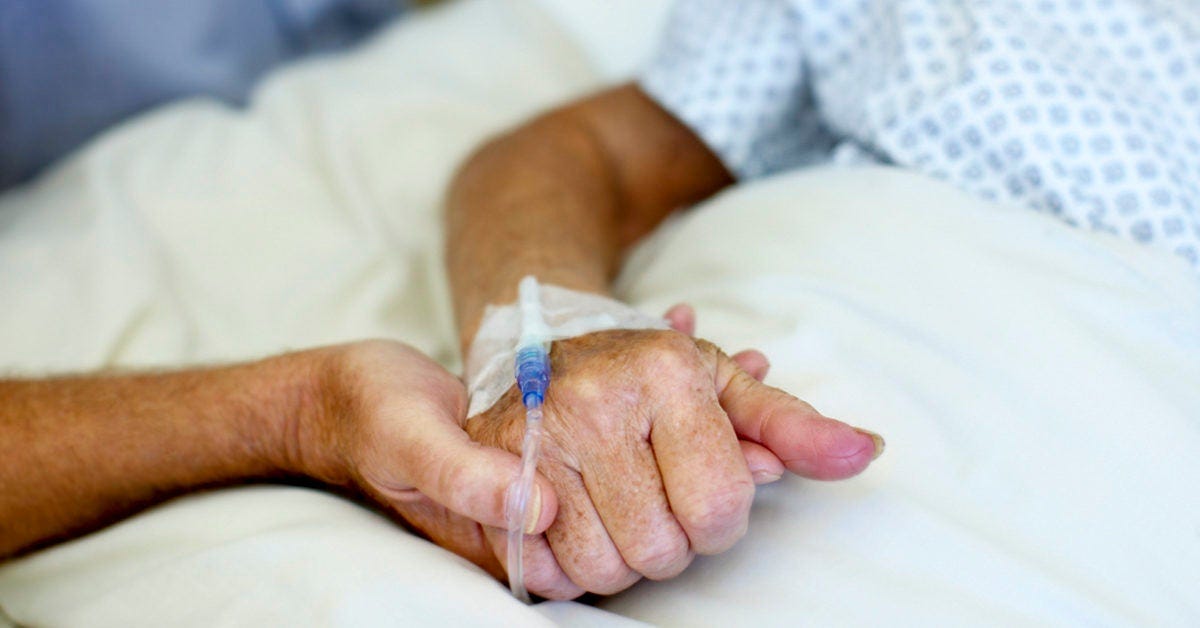I have been reflecting on euthanasia a lot recently, primarily due to the decision made by a close friend in Canada who, suffering from dementia, chose to end his life rather than endure further pain. In Canada, euthanasia is legal and conducted under strict regulations. He was surrounded by loved ones as he gently slipped into a permanent rest—what a peaceful way to go!
The upcoming vote in the UK Parliament on this issue has also prompted my thoughts. I personally hope they choose to legalise it, but what does Buddhism say about euthanasia? While the Buddha did not specifically address this topic, he emphasised that all actions have consequences, urging us to consider carefully before we act.
Euthanasia, derived from a Greek term meaning "a good death," refers to the practice of intentionally ending a life to relieve pain and suffering. There are two main types: voluntary and involuntary. Voluntary euthanasia occurs when death is hastened with the consent of the dying individual, whereas involuntary euthanasia takes place without consent, such as in cases where the individual is brain dead or in a long-term coma. Euthanasia can also be categorised into active and passive forms. Active euthanasia involves actions taken to end life, such as a lethal injection, while passive euthanasia involves withdrawing treatment and allowing nature to take its course. Laws regarding euthanasia vary across countries, so here, I will focus on its moral implications rather than the legal aspects.
Buddhism places great emphasis on the sanctity of life, as reflected in the first of its five precepts, which prohibits killing. At first glance, this might suggest that euthanasia is wrong within Buddhism. However, it is important to note that the precepts are not rigid rules; they serve as training guidelines rather than commandments. Furthermore, Buddhism places significant importance on compassion. If someone is dying in excruciating pain, could it not be considered an act of compassion to hasten their death, either with their consent or after consulting a medical professional?
As with many contentious issues, there are numerous perspectives to consider. I have selected three viewpoints that provide a representative cross-section of opinions within the Buddhist community. Firstly, the Dalai Lama has stated that all life is precious, suggesting it is better to avoid euthanasia. However, he also acknowledged that there are exceptional cases, implying that each situation should be assessed individually, which may allow for euthanasia under certain circumstances. I think this is a compassionate way to look at the subject.
Secondly, Thanssaro Bhikkhu, a Buddhist monk and scholar, argues that Buddha did not seek to ease a patient's transition to death but instead focused on insight into suffering and its cessation. From this perspective, encouraging a sick person to relinquish their hold on life or to abandon their will to live may not be viewed as a compassionate act. It appears that he believes it is more compassionate to witness a loved one endure suffering than to hasten their death.
Thirdly, Lama Zopa Rinpoche expressed that his primary concern was for the outcome of a person's next life. He acknowledged that many people perceive euthanasia as an act of compassion, but he emphasised that it must also be approached with wisdom. If ending a life would lead to greater peace and happiness in the next existence, the act may be justified; however, it could equally result in a rebirth in a lower realm, where suffering could be exponentially worse.
He further elaborated that if an individual is likely to remain in a coma for several years, rather than expending thousands of dollars to prolong their life, it would be better to withdraw support and utilise the funds to purify their negative karma, which could alleviate future suffering. This perspective appears valid if one accepts the notion of a next life, although I personally cannot confidently assert this possibility—can you?
In Buddhism, the discussion hinges on three key factors: the precept of not killing, compassion, and wisdom.
The Buddha taught the precepts to prevent harm to ourselves and others. However, if we rigidly adhere to these as mere rules, we risk becoming detached from the realities of human suffering. This detachment could lead us astray and may result in causing harm to others under the guise of Buddhism. True compassion must be informed, arising from our personal experiences and understanding of the world. It should not be mere sympathy but rather rooted in empathy. When compassion is grounded in this way, it is born of wisdom.
In my view, euthanasia should be considered on a case-by-case basis. Ideally, it should involve a three-way decision among the patient, the family, and the medical team. If the patient cannot participate in the discussion, the other two parties must act according to what they believe to be right and kind. Certainly, life is precious, but if a person has entirely lost their quality of life and is not expected to recover from their illness, euthanasia may be the kindest option.
If your loved one were enduring excruciating pain due to a terminal illness, what would you consider to be the compassionate and wise course of action? Should you allow them to suffer in this life, hoping their next existence will be improved, or should you relieve them of their anguish in the present moment? These are not easy questions to grapple with, and I hope I never need to face them. But if I do, I aspire to act out of compassion, rather than hiding behind ancient texts or interpretations of what the Buddha may or may not have said.
If you are in this difficult situation now or at any point in your life, my heart goes out to you, and I hope you can find some inner strength to make the right decision for you.
Given the personal nature of this issue, I believe it is essential to discuss it openly with our relatives and loved ones. This way, they will be aware of your views should anything arise.
If you would like to become a supporter of Buddhism Guides work, such as podcasts, blogs, videos and guided meditation practices, please visit here. You can support for as little as $2 a month. You can find my content on these apps: InsightTimer and RoundGlass Living.




Very interesting article! As someone who's been recently discovering Buddhism from a secular perspective, I found this insight into such a delicate topic compelling.
While reading the article, several thoughts came to mind. It’s indeed impossible to provide an all-purpose answer to such a complex issue.
In the case of active euthanasia, it seems to me that a distinction can be made between deciding to die because one desires death and deciding to die because, after careful introspection, one is no longer clinging to life. Of course, the human psyche is more nuanced than this, but I feel that departing from this world serenely when one is ready to leave would be a hard yet emotional moment, which can even turn poetic in some cases.
As for passive euthanasia, I think there are cases where what is left of the patient is just an empty simulacrum of their former self. Looking at the principle of Anatta, I’d argue that most of those aggregates that constituted the perceived “self” of that person are already gone. In some way we might say part of them, the concious one, is already dead. In such situations, maybe the family should evaluate whether their decision is driven more by their readiness to let a loved one go and come to terms with their death, rather than the desire to preserve a life.
Keep up the good work and have a nice day! :)